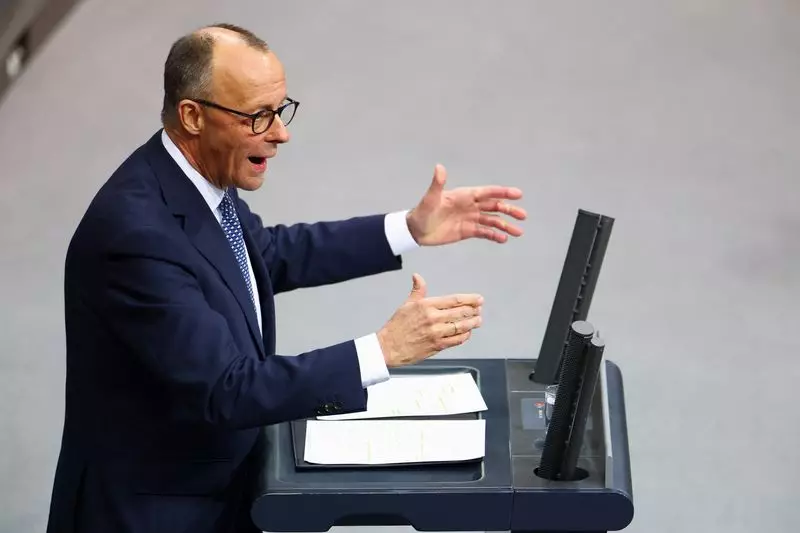As Germany gears up for a snap election on February 23, the political climate is charged with uncertainty and expectation. The recent collapse of Chancellor Olaf Scholz’s three-party coalition marks a pivotal moment in German politics, not only signaling the potential end of a troubled tenure but also spotlighting surging support for far-right factions. The upcoming manifestos from the primary political parties reveal contrasting strategies and ideologies aimed at reviving Europe’s largest economy, which faces daunting challenges, including stagnation and a wavering public sentiment.
With a forecast indicating a second consecutive year of economic contraction, the emerging campaigns aim to address critical facets such as fiscal policies, migration, and international relations. As the country stands at a crossroads, the political maneuvering that unfolds will undoubtedly have lasting implications.
Leaked details regarding the party manifestos suggest that addressing economic woes is a primary focus of all factions. The conservative Christian Democratic Union (CDU), led by Friedrich Merz, presents a vision of tax cuts, emphasizing reduced income and corporate taxes as a means to stimulate growth. However, critics argue that while Merz is open to reforms, his commitment to the fiscal restraint imposed by the constitution’s debt brake may hinder substantial progress. This legislative tool, introduced post-2009 financial crisis, has been criticized for limiting government flexibility in fostering economic development.
In contrast, the Social Democrats (SPD) aspire to evolve the existing framework. Faced with the pressing need to regain political traction, the SPD proposes the establishment of a significant off-budget fund—amounting to 100 billion euros—dedicated to modernizing infrastructure and incentivizing private investment. Their “Made in Germany” initiative seeks to stimulate domestic industry, reflecting a strategic pivot towards fostering local economic resilience.
The international landscape presents another layer of complexity in the upcoming election. Under Scholz, Germany has significantly bolstered its defense funding and plays a crucial role in supporting Ukraine amid ongoing conflict. However, the CDU’s Merz proposes escalating military aid to Kyiv, advocating for advanced weaponry such as Taurus missiles. This suggestion raises concerns regarding Germany’s potential entanglement in a direct confrontation with Russia, a move that Scholz appears hesitant to endorse.
Furthermore, the far-right Alternative for Germany (AfD) capitalizes on growing discontent, advocating for a complete cessation of arms shipments to Ukraine and a shift towards normalized relations with Moscow. This stark divergence in foreign policy perspectives reflects broader societal divisions, with many voters seeking clear stances on Germany’s role in global affairs.
Migration remains a contentious issue in the electoral discourse. Germany’s welcoming approach towards refugees during the 2015 crisis has shifted towards a more stringent stance, as exemplified by the reintroduction of border checks and proposals for stricter asylum processing policies. Merz has explicitly called for a more robust line against migration, suggesting that migrants should be turned away at the borders, thus signaling a pivot towards nationalist sentiments that resonate with segments of the electorate.
The fluctuating attitudes towards migrants highlight a growing apprehension within the German populace, as economic pressures and social cohesion take precedence in the public’s consciousness. The AfD’s rise in polls showcases the increasing appeal of right-leaning policies that promise to prioritize national interests, reflecting a broader trend in European politics.
As Germany approaches a critical juncture in its political journey, the forthcoming election encapsulates the tension between progressive aspirations and conservative retrenchment. Each party presents unique approaches to the pressing challenges of economic stagnation, defense, and migration, and how these measures resonate with voters will determine the country’s trajectory. The outcome will not only define the future of Germany under a new leadership but also influence the political landscape across Europe, emphasizing the need for cohesive strategies that address both domestic and international challenges head-on. The political landscape is undeniably shifting; how Germany responds to this pivotal moment may well redefine its identity in the years to come.

